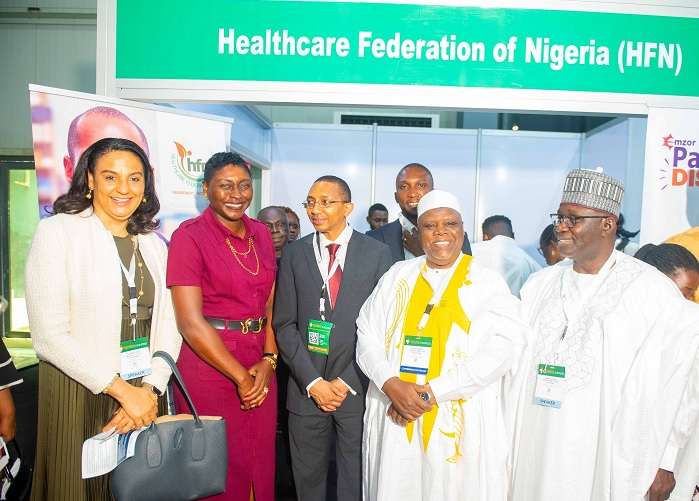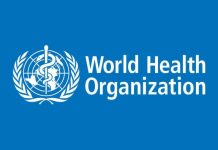
Stakeholders in the healthcare sector, policymakers, and industry leaders from across West Africa gathered 18 -20 March, 2025 at the Landmark Event Centre in Victoria Island for the highly anticipated Pharma West Africa 2025 Conference. The event, held under the theme “Unlocking the Healthcare Value Chain: The Journey So Far,” provided a platform for addressing the pressing challenges in Nigeria’s healthcare system while focusing on the opportunities that exist to strengthen the region’s pharmaceutical and healthcare infrastructure.
With an impressive lineup of speakers, including Dr Salma Ibrahim Anas, special adviser to the President on Health; Prof. Mojisola Adeyeye, DG of NAFDAC; and Pharm. Babashehu Ibrahim Ahmed, registrar of the Pharmacy Council of Nigeria (PCN), among others, the conference became a key milestone in the ongoing discussions about improving healthcare delivery across the continent.
Over the three days of insightful deliberations, attendees addressed some of the most critical issues facing the healthcare sector, with a focus on advancing Universal Health Coverage (UHC), optimizing supply chains, and embracing technology-driven innovations.

According to a communique issued after the conference and signed by the Chairman, Pharm. Ahmed I. Yakasai, the following highlights and action plans formed the focal point of the conference:
Advancing Universal Health Coverage (UHC) and the Role of Community Pharmacies
One of the most pressing topics discussed was Nigeria’s ongoing struggle with insufficient investment, weak healthcare delivery, and governance challenges. A recurring theme during the conference was the underutilization of Community Pharmacies (CPs), which play an essential role as the first point of access for many Nigerians, especially those bypassing Primary Healthcare Centres (PHCs).
Delegates emphasised the need for CPs to be formally recognised as part of the primary healthcare infrastructure. This move would not only boost accessibility but also relieve pressure on secondary and tertiary health facilities, ensuring that essential health services are within reach for the majority of the population. With less than 5 percent of Nigerians having health insurance, the burden of high out-of-pocket expenses remains a significant challenge, increasing financial strain on families.

Government Initiatives and Harmonised Regulation
Dr Abdu Mukhtar, the national coordinator of the Presidential Initiative on Unlocking the Healthcare Value Chain, outlined ambitious targets for 2030, including increasing local pharmaceutical manufacturing to 70 percent, establishing vaccine plants, and setting up new diagnostic and medical supplies facilities. Despite these promising goals, discussions highlighted the delay between policy formulation and implementation, with stakeholders calling for more efficient government action.
The need for streamlined regulations across African countries was also underscored, with a focus on improving local pharmaceutical production and ensuring consistent quality. The conference urged for quicker, more impactful steps in harmonizing regulations to improve the efficiency of pharmaceutical manufacturing.
Technology as a Catalyst for Healthcare Transformation
Technology emerged as a crucial enabler of Universal Health Coverage, with experts recognising its potential to expand access to healthcare through platforms such as online pharmacies and telemedicine. However, the conference also noted the lack of clear regulatory frameworks for these technologies, which are vital to ensure the security of patient data and the interoperability of health technologies with national health systems.
Experts called for the development of robust policies to manage these innovations and mitigate risks, paving the way for technology to play a more substantial role in improving healthcare delivery.
Empowering Pharmaceutical Wholesalers and Public-Private Partnerships (PPPs)
The role of pharmaceutical wholesalers and community pharmacies in ensuring the availability and affordability of medicines was a focal point of the discussions. Public-private partnerships (PPPs) were identified as a key strategy to enhance healthcare infrastructure and foster investment in the pharmaceutical sector.
Delegates agreed that strengthening policy frameworks to support these partnerships is critical for unlocking healthcare investment, improving efficiency, and ensuring the long-term sustainability of the healthcare system.
Youth Advocacy and Inclusion
The conference also recognised the vital role that young pharmacists and healthcare professionals play in advocating for public health. Their contributions to community-based initiatives and engagement in grassroots healthcare efforts were seen as pivotal in driving innovation and optimizing the healthcare value chain.
Action Points for the Future
Several actionable recommendations emerged from the conference discussions to accelerate progress within the healthcare sector. They include the need to: Formally recognise community pharmacies (CPs) as Primary Healthcare Centres (PHCs) and include them in national health registries; Reduce the lead time between government policy announcements and implementation; Enhance regulatory oversight of open markets while fostering innovative, quality-assured health supply chains; Strengthen policies surrounding health technology to ensure compatibility with national health data systems; and Foster greater public-private collaboration to unlock investment and drive innovation in the healthcare sector.
The Pharma West Africa 2025 Conference reinforced the shared responsibility of all stakeholders in strengthening the pharmaceutical sector and improving healthcare delivery across West Africa. With an unwavering commitment to policy reform, technological advancement, and public-private collaborations, the conference set the stage for transformative changes that will shape the future of Nigeria’s healthcare ecosystem.










